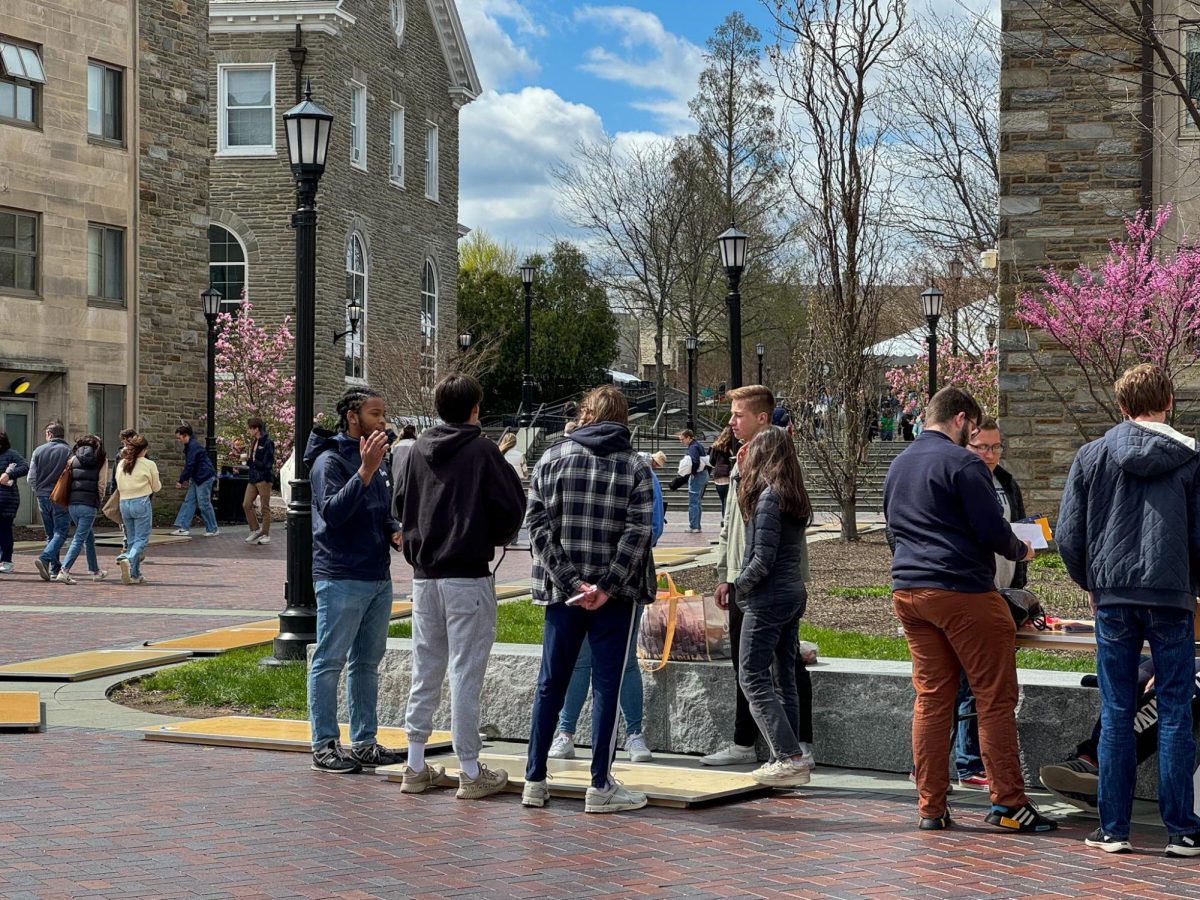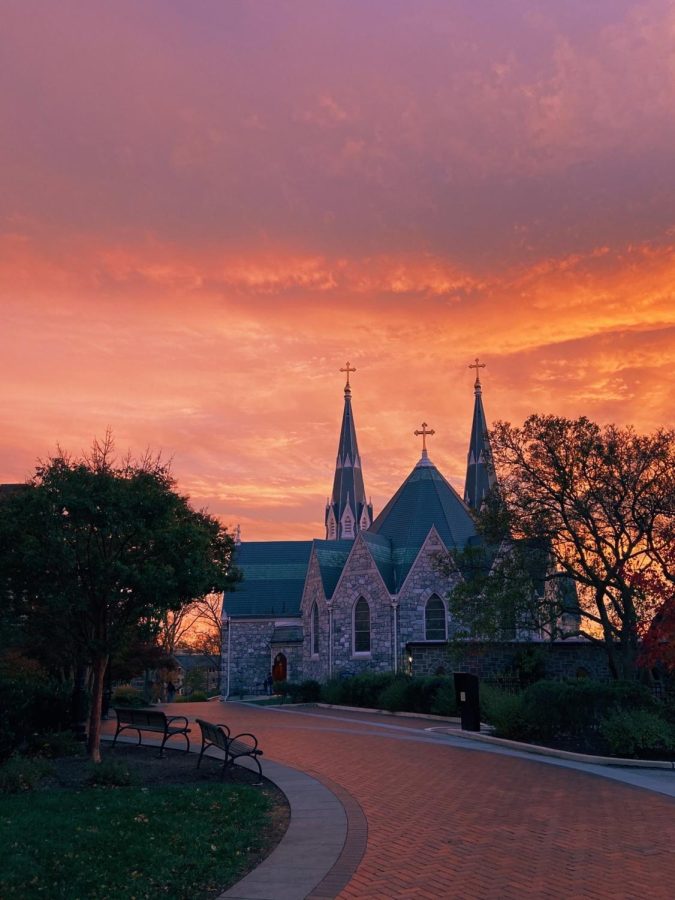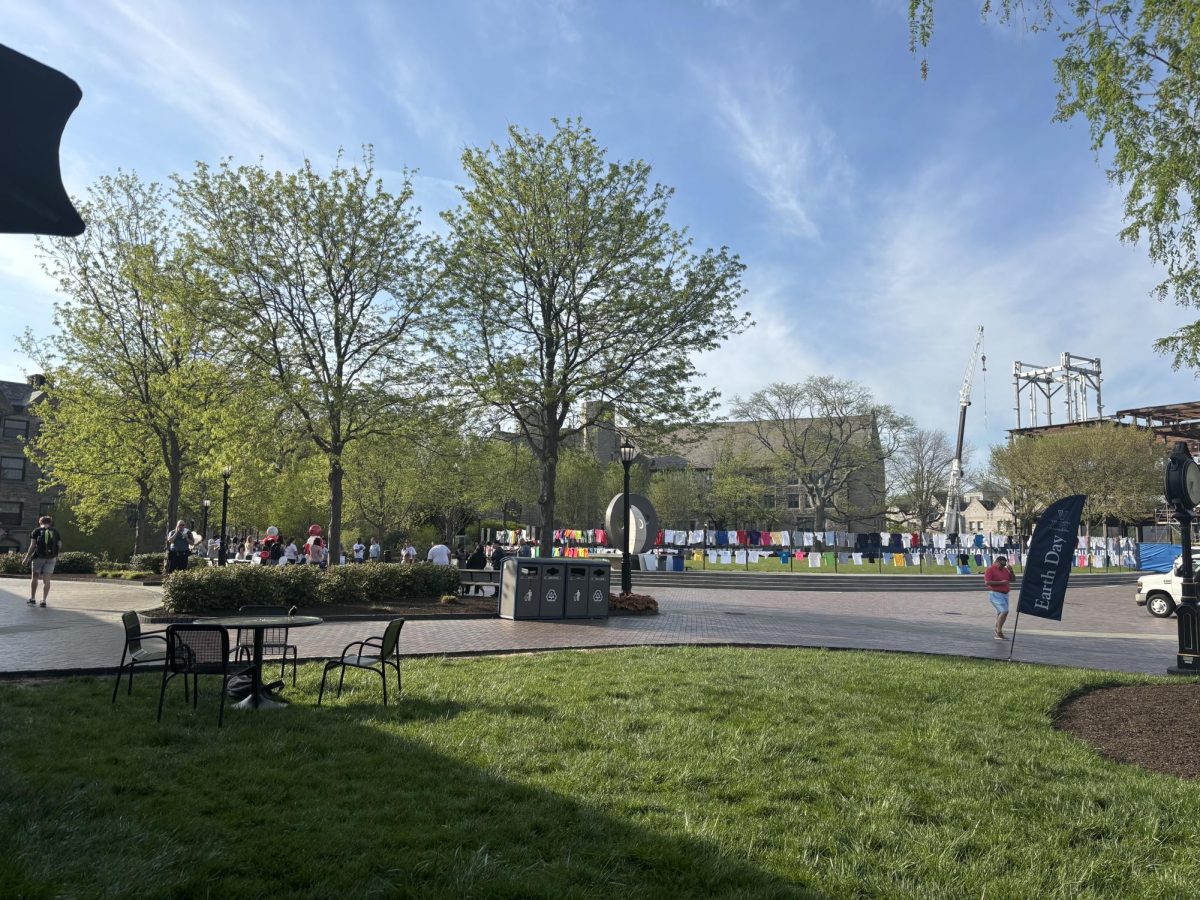With anticipation for the 2024 presidential matchup continuing to rise, many citizens across the nation will head to the polls in November with the aim of making their voices heard. However, students at Villanova find themselves in a uniquely influential position: if they are registered in the state of Pennsylvania, they will cast their votes in one of the most– if not, the most– critical swing states of this general election. So, what is a swing state?
“The term swing state is often used to describe a state that is thought to be competitive for either the Democratic or Republican party in a presidential election,” political science professor Erinn Lauterbach said. “You’ll often hear other ways of referring to these kinds of states, such as ‘battleground states’ or ‘purple states.’”
As reflected throughout American history, some states are more likely to vote in favor of a particular party. For example, Massachusetts has allocated its electoral votes to the Democratic presidential candidate in every general election since 1988, and Wyoming has given its to every Republican presidential candidate since 1968, as reported by 270toWin. Battleground states are those which are fair game for either party to win. They often do not consistently vote for one party or another.
According to BBC, there are seven major swing states whose electoral votes will have determining effects in this election: Arizona, Georgia, Michigan, Nevada, North Carolina, Wisconsin and Pennsylvania. However, Pennsylvania is shaping up to be the most sought after state of that list.
Both Donald Trump and Kamala Harris’s extensive campaigning in the Keystone State reflects the crucial role Pennsylvania will have in the upcoming election. According to NPR, former President Trump has visited Pennsylvania eight times during his campaign, with five of those visits since July. Vice President Harris has visited Pennsylvania eight times since she announced her presidential campaign in late July.
Time is not the only resource Harris and Trump have been spending in Villanova’s home state. Both campaigns have poured quite large sums of money into advertising, as well. AdImpact, an advertisement analytics agency, has kept track of fund reservation for television advertising made by both campaigns and their allied organizations. The site reports that between Sept. 4 and Election Day, the budget reserved for all presidential advertising in the seven key swing states is $401.5 million. Of that, a whopping $137.1 million– about 34%– has been reserved for Pennsylvania alone. That figure squashes the sum of all reservations made for the next two on the list: Georgia, with a total of $64.1 million, and Michigan, with a total of $61.1 million.
Investing such large amounts of time and money are strategic moves by both campaigns, but why? What makes Pennsylvania a more influential swing state than the other six?
“Pennsylvania [has] 19 electoral college votes, [the most of any of the seven major swing states], making it a large potential prize for either presidential candidate,” Lauterbach said. “Pennsylvania, along with most other states, allocates all 19 of its electoral college votes according to a winner-takes-all rule, meaning the candidate who wins the statewide popular vote is awarded all 19 votes. That has the potential to make a big difference in the race to 270 votes.”
Pennsylvania’s status as a decisive swing state has crucial implications for Villanova students. Whether they are living in an on-campus dorm, an off-campus house or at home, eligible students can register and vote in one of the most competitive states of the 2024 election.
“Voting represents an important civic duty and those who are eligible should absolutely get out and vote in November, regardless of what state you are registered to vote in,” Lauterbach said. “For students who are registered to vote in Pennsylvania, it’s worth noting that the margin of victory in the 2020 presidential election was pretty small. So go out and let your voice be heard.”







